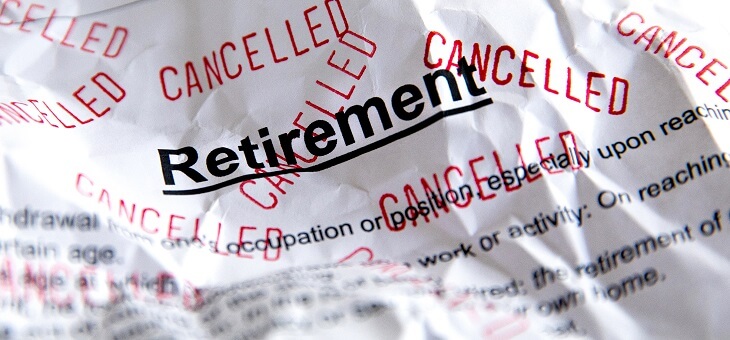Global research says that 2022 is presenting a mega-challenge for retirees and is the hardest year in recent history to retire.
The culprits, according to Natixis Investment Managers 2022 Global Retirement Index, are market downfall, low rates and inflation, which have combined to leave retirees’ wallets lighter.
Described by its creators as “a multi-dimensional index”, the index is made up of 18 performance indices that cover key aspects for welfare in retirement: the material means to live comfortably in retirement; access to quality financial services to help preserve savings value and maximise income; access to quality health services, and a clean and safe environment.
Read: Retirement dos and don’ts in the face of rising inflation
Using data from 44 nations, including OECD countries, plus Brazil, Russia, India and China, the indices are used to rank the countries in order of retirement security. This year, Norway ranked highest, followed by Switzerland and Iceland.
The good news is that Australia ranks highly, coming in fifth of the 44 nations. Our high ranking comes on the back of an excellent pension fund performance, with a growth in assets of 18 per cent. Only New Zealand, with 19 per cent, had a higher rate.
Overall though, the Natixis report is a cautionary one, and is actually named Danger Zone: Global retirement security challenges come home to roost in 2022.
“The warning signals are blaring and the gauges are flashing bright red in 2022,” the report says of retirement security risks.
Read: Seven signs you’ll run out of money in retirement
As inflation runs up to levels not seen in four decades, the report says, with markets down, rates still relatively low and inflation taking a big bite out of retirees’ wallets, those who step out of the working world run the risk of taking retirement distributions from an already depleted pool of assets.
It’s also likely they’ll have to take greater risks with their portfolio to make up lost ground. But the report also points out that, with 20 years ahead in retirement, there is still time for 2022’s retirees to reset their plans.
A separate survey conducted by Natixis Investment Managers names the common mistakes retirees and pre-retirees are making. It found:
- 49 per cent of financial advisers believe that underestimating the impact of inflation is the number one error made in retirement planning
- 46 per cent of retirees underestimate how long they will live
- 42 per cent overestimate investment income
- 41 per cent are too conservative with their investments
- 21 per cent are too aggressive with investments
- 40 per cent set up unrealistic return expectations
- 39 per cent forget to factor in healthcare costs
- 33 per cent rely too heavily on public benefits
- 23 per cent underestimate real estate costs.
The report says “the longevity revolution” will continue to tax retirees’ income plans.
Read: How do retirees feel about the Age Pension increase?
“Getting retirement security right and helping to ensure individuals can live with dignity after their working years is a core sustainability issue for society in the 21st century,” it says.
“Success will require a concerted effort from policymakers, employers, the financial services industry and individuals.”
Are you retiring or have you retired in 2022? Have you been forced to change your plans due to the economic upheaval? Why not share your experience in the comments section below?


I beg to differ. I retired in Feb 2008. Started drawing down super and got hit by the GFC. Super balance down 35%.
Of course over time it recovered. Then just under a decade of comparative stability, ended by covid delivering a 12% drop in my superannuation balance. Quite a rapid turnaround this time.
And now here we go again. Super impact not so bad this time but share portfolio down almost 30%. The drop this time feels the worst.
I hope this is the last. 3 such events in 14 years is pretty hard to take.